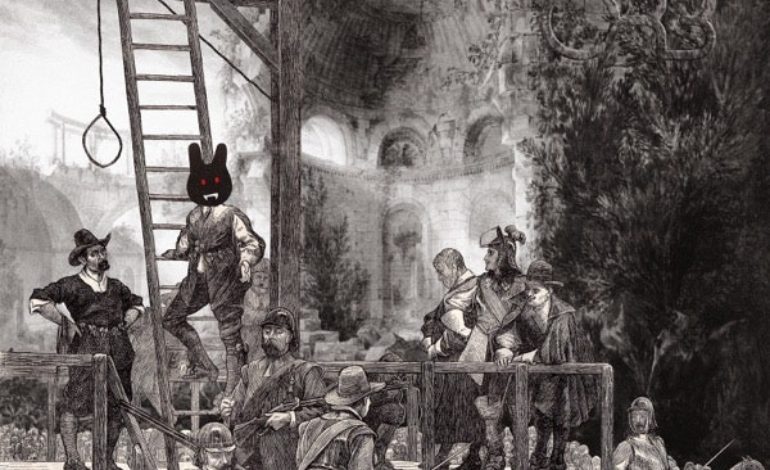

Charming but somewhat frustrating release from veteran electronic group
Active for more than 30 years, British electronic outfit The Orb have carved out their own eclectic niche in the music world. Often garnering comparisons to Pink Floyd, the group has developed a cult following among drug-addled clubbers for their immersive concert style and psychedelic brand of ambient house and IDM. On their 16th and most recent release, Abolition of the Royal Familia, The Orb tone back the psychedelia in favor of reggae and funk influences, assembling a creative yet occasionally frustrating and neurotic collection of tracks that will likely satisfy longtime fans more than first-time listeners.
Orb frontman Alex Paterson is the lone remaining founder of the group, but he didn’t maintain his long term success by following standard industry conventions. On Abolition of the Royal Familia, the group’s vision is a bit muddled, as they jump from beat-heavy funk bangers to poignant ambient passages to sample-laden reggae cuts. Science fiction references, politics and humor are no strangers to The Orb albums and they resurface again on Abolition of the Royal Familia, adding that extra creative spark that followers of the group know so well. It’s an assortment of tracks that won’t be palatable to mainstream audiences–but that’s not what The Orb are aiming to achieve anyway.
The record kicks off with a few funk-influenced house cuts that’ll be sure to make people’s head nod. “Daze” and “House of Narcotics” are two relatively straightforward club bangers, Orb-style. Washed out ’70s-sounding synths and groovy bass lines dominate the mixes, with more creative instrumentation like strings and bongoes thrown in for color. “Hawk Kings,” a play on words referencing the track’s Stephen Hawking-inspired samples, is a bit more cerebral. It’s a techno-laced progressive house cut, with a driving beat and a deceptively subtle mix bookended by computerized sci-fi musings that create an inescapably futuristic aura.
Abolition of the Royal Familia also incorporates ambient music later on. The tracks “Pervitin” and “Afros, Afghans and Angels” both lack traditional beats, as The Orb pivot to a spacier and airier sound. Strings and washed out synths are used heavily on both cuts, but while both cuts sound pretty, they’re a bit repetitive and lengthy.
The track “Shape Shifters (In Two Parts)” contains perhaps the most beautiful moment on the project. In the song’s first section, a trumpet wails freely and gorgeously over glowing, washed out synthesizers and a bass guitar, creating a delightfully poignant and pensive feel. The track then transitions to its second section, a spaced out reggae tune complete with steel drums, offbeat keyboard hits and a groovy bass line. However, though both halves of the track are sublime individually, there doesn’t appear to be much of a connection between them.
“Say Cheese” and “Ital Orb” continue that reggae sound, and while both are supremely groovy, they don’t add many new or exciting sounds to the album, besides some pretty harp accompaniments in the latter track. They’re also laden with seemingly unrelated samples which, while occasionally interesting or humorous, will likely turn off some listeners.
“The Weekend It Rained Forever” is a return to ambience and a grandiose one at that. A droning synth lays the foundation of the mix, but the star is a gorgeous, melancholy piano that plays sporadic hits throughout the track. This is about as intricate as The Orb get on the record, as they play around with lots of subtle vocals, synth hits, keyboard runs, guitar riffs, white noise and a slew of other sounds. However, at over 12 minutes long, the song doesn’t have enough tonal or instrumental shifts to justify its lengthy run time.
That track is juxtaposed with album closer “Slave Til U Die No Matter What U Buy,” perhaps the record’s simplest song as well as its most explicitly political. It’s structured like a public service announcement in what seems to be a dystopian world, à la Demon Days. A glowing, airy synthesizer drones beneath a disembodied voice that spews authoritarian rhetoric in the vein of Big Brother, and though the track feels a bit out of place on the album, it ultimately leaves the listener with plenty to think about.
When it comes to clever instrumentation, general zaniness and downright weirdness, The Orb deliver in a big way on Abolition of the Royal Familia. Each track is full of charm, but as a whole, the record feels a bit incoherent, jumping from toe-tapping house to gentle ambience to spaced out reggae, seemingly at random. And while some listeners will be sure to enjoy the project’s chaotic sampling, eclectic mixes and science fiction chic, those aspects could leave many feeling more disoriented than charmed.
